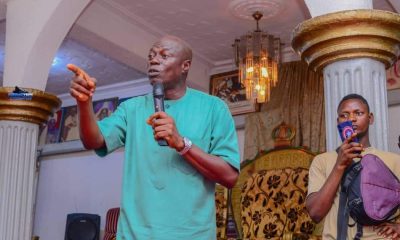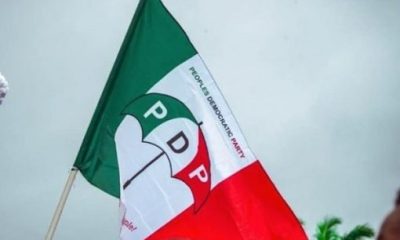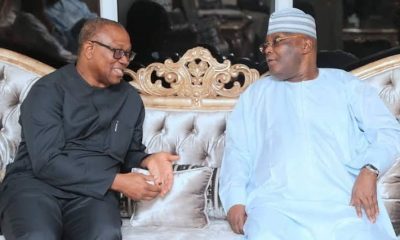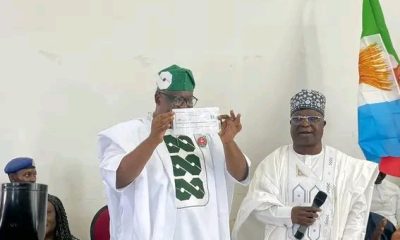Opinion
Nigeria At 64: PDP As The Path To Economic Recovery By Shina Adewoye
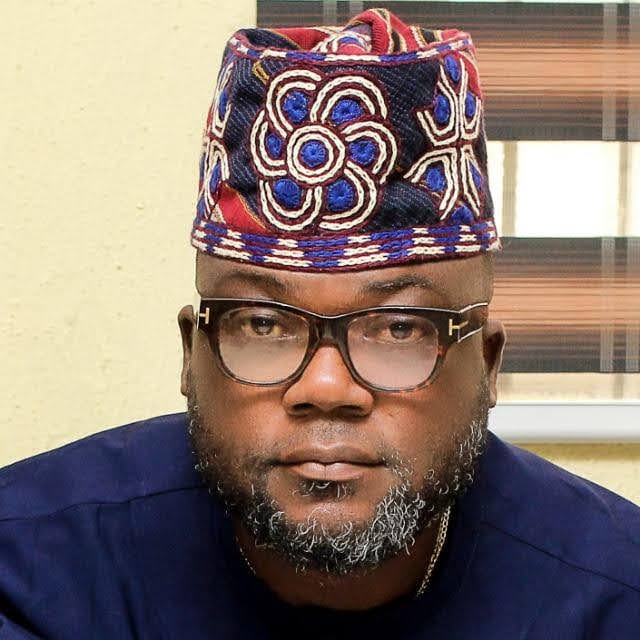
As Nigeria marks its 64th Independence Day, it is a time for both celebration and deep reflection. Our journey since 1960 has been defined by our resilience, diversity, and vast potential. Yet, despite our rich resources and proud heritage, Nigeria continues to face significant challenges that undermine our development. While the country grapples with economic instability, insecurity, and social divisions, it is essential to examine the root causes and seek solutions for progress.
The Case for the PDP in Economic Recovery
One undeniable reality over the past decade is that Nigeria’s economic woes have worsened under the All Progressives Congress (APC) administrations, led by Muhammadu Buhari and now Bola Ahmed Tinubu. A comparative analysis between these administrations and previous People’s Democratic Party (PDP) governments, led by Olusegun Obasanjo, Umaru Musa Yar’Adua, and Goodluck Jonathan, reveals a clear contrast in economic management and outcomes.
Under the PDP administrations, especially during Obasanjo’s tenure, Nigeria experienced significant economic growth, debt relief, and increased foreign direct investment. The Yar’Adua and Jonathan governments also introduced critical reforms, such as the Amnesty Program in the Niger Delta, which helped to stabilize the oil-producing region and fostered economic growth. In contrast, the APC government has overseen a period of heightened economic instability, inflation, and increasing poverty rates. Despite Nigeria’s potential, the APC’s economic policies have failed to lift the country out of its current struggles.
The APC’s economic management has been marked by policy inconsistencies, poor planning, and a lack of focus on diversifying the economy. Buhari’s administration saw the devaluation of the naira, high inflation, and a rise in unemployment, while Tinubu’s tenure, though still in its early stages, has continued to struggle with similar challenges. These issues have led many to believe that the PDP offers a more viable path to economic recovery, with a proven track record of managing the economy more effectively.
Persistent National Challenges
Economic Instability: The Nigerian economy remains overly reliant on oil exports, leaving it vulnerable to global oil price fluctuations. While the PDP administrations worked toward economic diversification, recent APC governments have not made meaningful progress in this area. Small and medium enterprises (SMEs) are stifled by poor infrastructure, inconsistent policies, and limited access to credit.
Insecurity: Nigeria continues to face widespread insecurity, from Boko Haram in the northeast to banditry, kidnapping, and communal violence across the country. Despite heavy investments in security, the APC governments have struggled to stem the tide of violence, leaving many regions unstable and impeding economic development.
Corruption: While both the APC and PDP have faced accusations of corruption, the APC’s anti-corruption campaign has been seen by many as selective and ineffective. Under the PDP, there were efforts to reform key institutions, but much work remains to be done in tackling systemic corruption across all levels of government.
Education and Healthcare: The educational and healthcare sectors remain underfunded and poorly managed. The PDP administrations introduced various initiatives to address these gaps, but the current state of these sectors has worsened under the APC’s leadership, resulting in brain drain, inadequate healthcare services, and a growing disparity in access to quality education.
Ethnic and Religious Divides: Nigeria remains deeply divided along ethnic and religious lines. Under the PDP, efforts were made to promote national unity and inclusive governance. However, the APC’s tenure has seen an increase in tensions, with policies that many argue have deepened divisions rather than healed them.
The Way Forward
If Nigeria is to emerge from its current state of economic malaise and insecurity, a change in leadership direction is required. The PDP, with its experience in governance and a more balanced approach to economic management, appears to be the most viable solution.
Economic Diversification: The PDP should prioritize diversifying the economy by investing in agriculture, technology, manufacturing, and renewable energy. By empowering SMEs and creating an enabling environment for investment, Nigeria can reduce its reliance on oil and foster long-term economic growth.
Tackling Insecurity: A PDP government must strengthen intelligence gathering, invest in law enforcement, and implement policies aimed at addressing the root causes of insecurity. The focus should be on job creation and poverty alleviation to reduce the allure of crime and violence for young Nigerians.
Fighting Corruption: The PDP needs to revisit its anti-corruption strategies by building more transparent governance systems. True reform will come when corruption is tackled without bias and with robust institutional frameworks that encourage accountability.
Revamping Education and Healthcare: The PDP should invest significantly in education and healthcare, ensuring that professionals in these sectors are well-trained, well-paid, and well-equipped to deliver quality services. This investment will not only improve the quality of life but will also create jobs and reduce inequality.
Promoting National Unity: Nigeria must prioritize policies that promote inclusivity and bridge ethnic and religious divides. The PDP can lead the charge in fostering national dialogue, encouraging unity, and ensuring that every Nigerian feels represented in governance.
Conclusion
As Nigeria celebrates its 64th Independence Day, it is clear that we stand at a crossroads. The APC’s tenure has not provided the economic recovery or security that Nigerians long for. With a track record of better economic management, the PDP presents a viable alternative for addressing the country’s persistent challenges. As we look to the future, it is crucial to chart a path that leads to sustainable growth, national unity, and true progress for all Nigerians.
Happy Independence Day, Nigeria!
Otunba Shina Adewoye
Public Policy Analyst
-

 News4 days ago
News4 days agoRamadan, Lent: Shettima Calls For National Unity And Compassion
-

 Opinion4 days ago
Opinion4 days agoReinventing Osun’s Economy Through Dagbolu Intl. Trade Centre: From Quiet Market Lessons To Regional Trade Revolution By Adeboye Adebayo
-
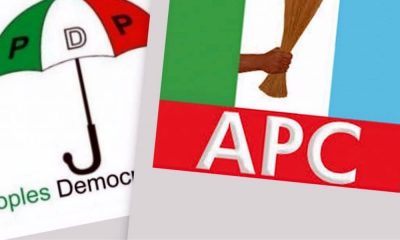
 News4 days ago
News4 days ago‘Wike Factor’: Another PDP Chairmanship Candidate Steps Down For APC In FCT
-

 News3 days ago
News3 days agoInsecurity: Kogi Schools Resume On Monday



